This article was co-authored by Peter Gardner, MD. Peter W. Gardner, MD is a board certified physician who has practiced Gastroenterology and Hepatology for over 30 years. He specializes in diseases of the digestive system and liver. Dr. Gardner earned his Bachelor’s degree from the University of North Carolina and attended Georgetown Medical School. He completed his residency in Internal Medicine and then his fellowship in Gastroenterology at the University of Connecticut. He is a previous Chief of Gastroenterology at Stamford Hospital and remains on the staff. He is also on the staff of Greenwich Hospital and New York (Columbia) Presbyterian Hospital. Dr. Gardner is an Approved Consultant in Internal Medicine and Gastroenterology with the American Board of Internal Medicine.
There are 8 references cited in this article, which can be found at the bottom of the page.
wikiHow marks an article as reader-approved once it receives enough positive feedback. In this case, 94% of readers who voted found the article helpful, earning it our reader-approved status.
This article has been viewed 162,893 times.
Diverticulitis is caused by inflammation and infection of small pouches (diverticula) in the digestive tract and most often occurs in people older than 40. Pouch formation can lead to a serious infection that needs prompt medical attention. Treatment for diverticulitis can vary and depends on the severity and number of times it has occurred. Symptoms of diverticulitis include abdominal pain, cramping, rectal bleeding, fever, nausea, and changes in bowel movements.
Steps
Treating an Episode of Diverticulitis
-
1Consume a liquid, low-fiber diet. One of the possible causes of diverticulitis is the consumption of small, inadequately chewed and difficult-to-digest foods like seeds, corn, and berries. These get caught in the diverticula of the intestine and feed a bacterial colony, sometimes causing infection. If experiencing an episode of diverticulitis, it is best to avoid any foods which might worsen the infection. This means avoiding fiber (which pushes more waste into the infected area) and avoiding the aforementioned difficult-to-digest foods.[1]
- When the diverticulitis episode is over, you should greatly increase your dietary fiber intake.
- Try not to consume too much dairy during this time.
-
2Take antibiotics. Visit your doctor to get a prescription for antibiotics. Diverticulitis occurs when the diverticula (small pockets in the colon) become infected. This can only fully be treated with antibiotics, or else the infection will continue to spread. Follow the package directions with your antibiotics; they typically involve taking a pill orally at least once a day, but this will vary depending on your prescription.[2]Advertisement
-
3Take pain relievers. Most people suffering from diverticulitis experience abdominal pain and cramping. Although this won’t go away until the infection clears up, you can take pain medication to help reduce the pain in the meantime. Look for ibuprofen, acetaminophen, or naproxen in low doses so that you can take a bit whenever you experience a flare-up of pain.[3]
-
4Try an herbal treatment. Some people have claimed that certain herbs expedite the healing process involved in ridding your body of infection, and also help to reduce any pain or discomfort you may be feeling. Look for teas or supplements containing chamomile or slippery elm, two herbs commonly used for stomach problems. If nothing else, drinking a hot glass of tea is soothing and can ease any cramping you’re experiencing in your stomach.
-
5Get acupuncture. Although it may sound strange to any non-acupuncturists, acupuncture can help relieve certain pressure points that cause pain or pressure in your abdomen. Find a local acupuncturist and see what they can do for your diverticulitis. Although this won’t help to heal the infection at all, it should make you more comfortable.
-
6Do a bit of hydrotherapy. Hydrotherapy is pretty straightforward - it involves using water as a means of treating your discomfort. There are a few different hydrotherapy techniques you can try at home. Take a warm bath with Epsom salts, or use a hot water compress on your abdomen to loosen up the muscles and reduce your pain.[4]
-
7Apply a heating pad to your abdomen. A heating pad can also help alleviate pain caused by an episode of diverticulitis. Try lying down with the heating pad on your abdomen until the pain subsides.
- Be careful not to fall asleep with the heating pad on.
-
8Try using some relaxation techniques. Relaxation techniques can help make the pain you're feeling more manageable. A couple relaxation techniques you can try are:
- Meditation. Find a quiet, comfortable place to sit and meditate for 15 minutes.
- Deep breathing. Lie down somewhere quiet and comfortable and take slow, deep breaths while focusing on your breathing.
Understanding Possible Complications
-
1Watch out for abscess formation. If you experience a bout of diverticulitis without antibiotic treatment, the infection may spread into a pustule or abscess. Typically, you’ll experience more extreme pain, a high fever, and a high white blood cell count. Treatment for a diverticulitis episode turned abscess is a catheter that is inserted through the stomach into the abscess, which drains the abscess over several days.[5]
-
2Be aware of peritonitis. If you do end up getting an abscess that doesn’t get treated, the next infection level is peritonitis. This is when the infection/abscess spreads from beyond the pustule to encompass the entire lower portion of the large intestine. Typically, people with peritonitis will experience a high fever, illness with vomiting, abdominal pain, and low blood pressure. The only treatment is a course of vigorous antibiotics and surgery to remove the infected portion of intestine.[6]
-
3Know about fistula formation. If you have a bad case of diverticulitis, one possibility is that instead of the infection spreading to a larger portion of your colon, it could spread to adjacent areas of your body such as your bladder or skin. This has similar symptoms to peritonitis, but can only be identified and treated by a doctor. Treatment involves antibiotics at least, but often surgery as well.[7]
-
4Understand stricture formation. This is one of the rarer side-effects of diverticulitis; if you experience the infection which goes untreated, scar tissue may form and narrow a portion of the colon. This narrowing is called a ‘stricture’, and can prevent waste from passing through. The treatment for stricture formation is typically surgical, depending on the scope of the problem.[8]
Preventing Diverticulitis
-
1Eat a high-fiber diet. If you consume dietary fiber on a daily basis, your body will be able to push waste through your colon in an efficient manner, preventing it from building up in the small diverticulos sacs that develop. Fruits and vegetables are both very high in dietary fiber, along with beans, whole grains, and brown rice. These foods all have other natural benefits beyond preventing diverticulitis, making them helpful to add to your diet anyway.[9]
- Don’t begin eating fiber until after you’ve recovered from an episode of diverticulitis.
-
2Consume more probiotics. Because the infection that causes diverticulitis is a result of harmful bodily bacteria, some doctors have theorized that eating more healthy bacteria (probiotics) can cleanse your colon and prevent an infection. Probiotics are typically found as live cultures in certain types of yogurt and help to cleanse your stomach and intestines of harmful bacteria, making you feel better when consumed on a regular basis.[10]
-
3Drink fluids regularly. Water and other fluids, when consumed on a regular basis, have a hugely positive effect on nearly every aspect of your body’s functioning. Aim to drink 8 glasses of water per day, as this will cleanse out harmful bacteria and help provide energy to your body .
-
4Visit your doctor regularly. Once you’ve been diagnosed with diverticular disease, you should monitor your colon to help prevent future episodes. This can also help to prevent more serious side effects from occurring (see the aforementioned). Aim to visit your doctor about two months after your first episode, and look into getting a colonoscopy or barium enema x-ray. These will both be able to show any issues that might occur, allowing you to seek treatment before it’s too late.[11]
-
5Practice healthy bowel habits. Healthy bowel habits can help prevent diverticulitis. Try to eat at the same times every day, and make sure you're drinking enough water. Also, avoid straining yourself during bowel movements or using enemas and laxatives, unless directed otherwise by your doctor.
Expert Q&A
-
QuestionWhat are the side effects of diverticulitis?
 Marsha Durkin, RNMarsha Durkin is a Registered Nurse and Laboratory Information Specialist for Mercy Hospital and Medical Center in Illinois. She received her Associates Degree in Nursing from Olney Central College in 1987.
Marsha Durkin, RNMarsha Durkin is a Registered Nurse and Laboratory Information Specialist for Mercy Hospital and Medical Center in Illinois. She received her Associates Degree in Nursing from Olney Central College in 1987.
Registered Nurse The side effects of diverticulitis include abdominal pain, nausea, cramping, fever, rectal bleeding, and bowel changes.
The side effects of diverticulitis include abdominal pain, nausea, cramping, fever, rectal bleeding, and bowel changes. -
QuestionWhat happens if diverticulitis is left untreated? I haven't gone to the bathroom in 3 days, and I've been diagnosed with diverticulitis. I'm in pain.
 Marsha Durkin, RNMarsha Durkin is a Registered Nurse and Laboratory Information Specialist for Mercy Hospital and Medical Center in Illinois. She received her Associates Degree in Nursing from Olney Central College in 1987.
Marsha Durkin, RNMarsha Durkin is a Registered Nurse and Laboratory Information Specialist for Mercy Hospital and Medical Center in Illinois. She received her Associates Degree in Nursing from Olney Central College in 1987.
Registered Nurse You need to be seen by a doctor ASAP. Call your doctor, or go to an ambulatory clinic or ER if you are in pain.
You need to be seen by a doctor ASAP. Call your doctor, or go to an ambulatory clinic or ER if you are in pain. -
QuestionHow can I lower a fever caused by diverticulitis?
 Marsha Durkin, RNMarsha Durkin is a Registered Nurse and Laboratory Information Specialist for Mercy Hospital and Medical Center in Illinois. She received her Associates Degree in Nursing from Olney Central College in 1987.
Marsha Durkin, RNMarsha Durkin is a Registered Nurse and Laboratory Information Specialist for Mercy Hospital and Medical Center in Illinois. She received her Associates Degree in Nursing from Olney Central College in 1987.
Registered Nurse You can lower a fever caused by diverticulitis by taking an antipyretic medication like Tylenol.
You can lower a fever caused by diverticulitis by taking an antipyretic medication like Tylenol.
Warnings
- Always seek help from a doctor if you experience unusual stomach pain or cramping, as this could be a symptom of diverticulitis or a more serious disease.⧼thumbs_response⧽
References
- ↑ https://www.mayoclinic.org/diseases-conditions/diverticulitis/symptoms-causes/syc-20371758
- ↑ https://www.mayoclinic.org/diseases-conditions/diverticulitis/diagnosis-treatment/drc-20371764
- ↑ http://www.webmd.com/digestive-disorders/tc/diverticulitis-treatment-overview
- ↑ http://health.howstuffworks.com/wellness/natural-medicine/alternative/alternative-medicines-for-diverticular-disease.htm?_ga=1.57405482.1819933678.1391124748
- ↑ https://www.niddk.nih.gov/health-information/digestive-diseases/diverticulosis-diverticulitis/treatment
- ↑ https://www.niddk.nih.gov/health-information/digestive-diseases/diverticulosis-diverticulitis/treatment
- ↑ https://www.niddk.nih.gov/health-information/digestive-diseases/diverticulosis-diverticulitis/treatment
- ↑ http://www.health.harvard.edu/newsletters/Harvard_Mens_Health_Watch/2010/August/diverticular-disease-of-the-colon
- ↑ https://www.niddk.nih.gov/health-information/digestive-diseases/diverticulosis-diverticulitis/treatment
- ↑ http://www.medicinenet.com/diverticulosis/page5.htm
- ↑ http://www.webmd.com/digestive-disorders/tc/diverticulitis-treatment-overview
- ↑ Peter Gardner, MD. Board Certified Gastroenterologist. Expert Interview. 25 August 2020.
About This Article
To treat an episode of diverticulitis, start by getting a prescription for antibiotics from your doctor to treat the infection and keep it from spreading. Then, try taking an over the counter pain reliever to help with the abdominal pain and discomfort. Alternatively, place a heating pad on your abdomen until the pain subsides. You can also try using relaxation techniques to help make the pain more manageable. For example, lie down somewhere quiet and comfortable, and take slow, deep breaths while focusing on your breathing. For more advice from our Medical reviewer, including how to prevent diverticulitis by making changes to your diet, keep reading.
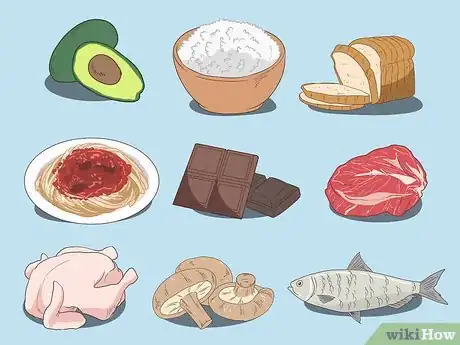
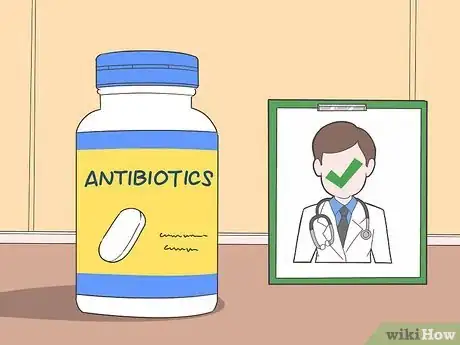
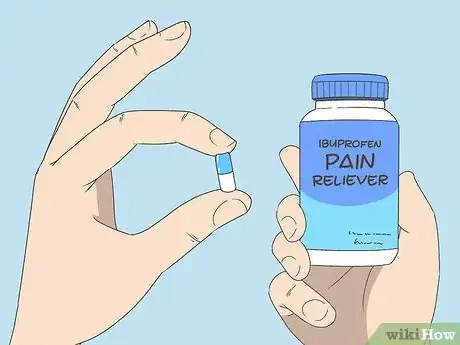
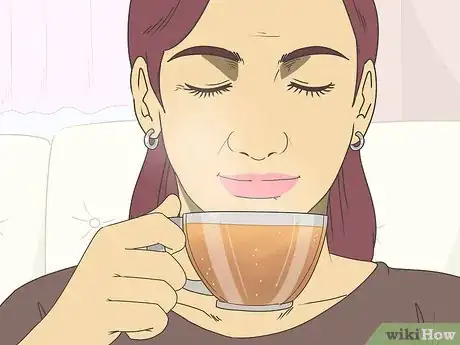
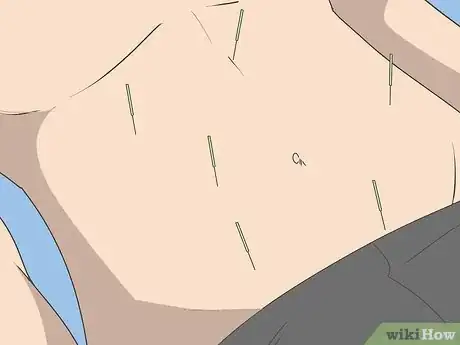
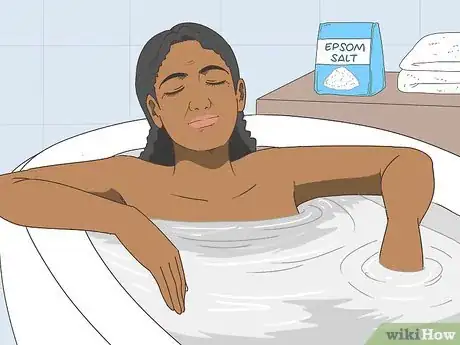
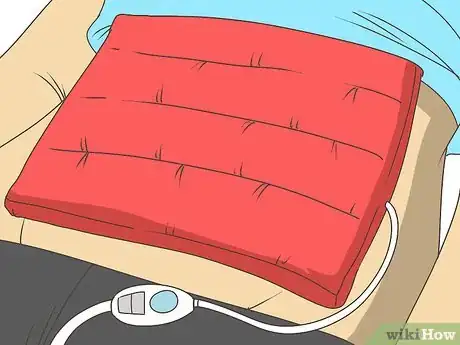
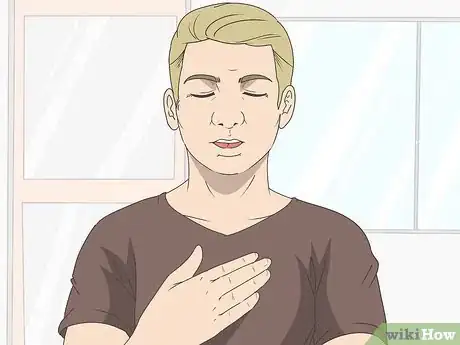
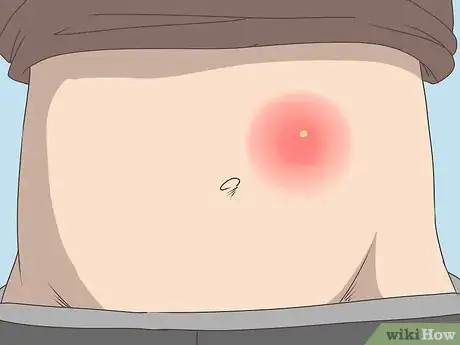
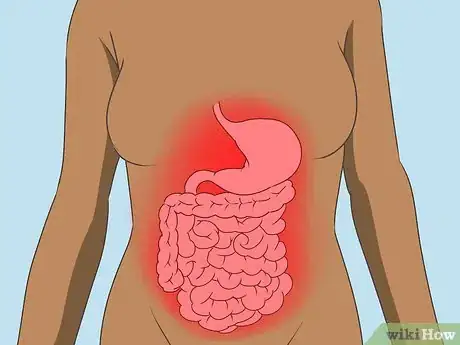
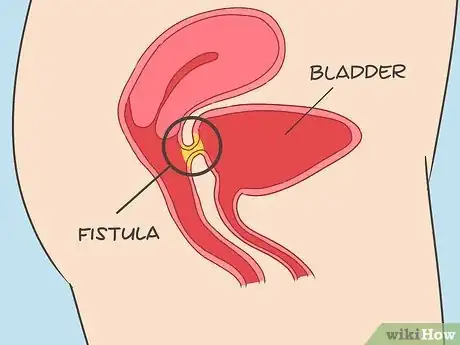
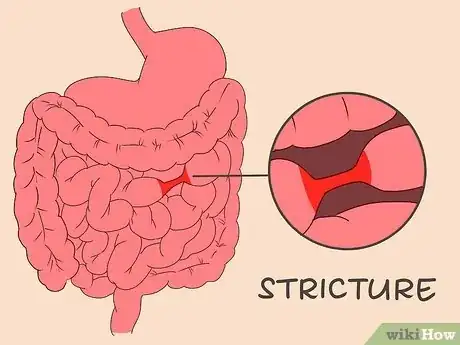
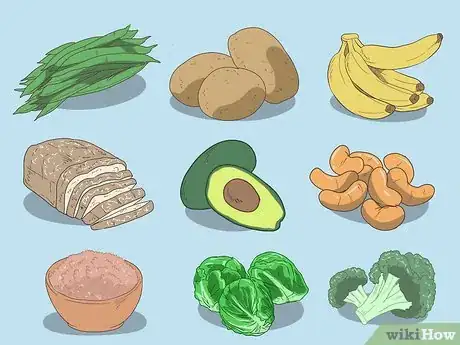
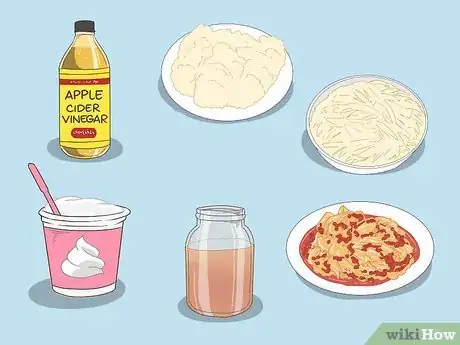
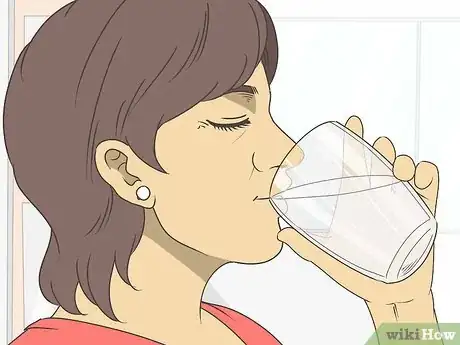
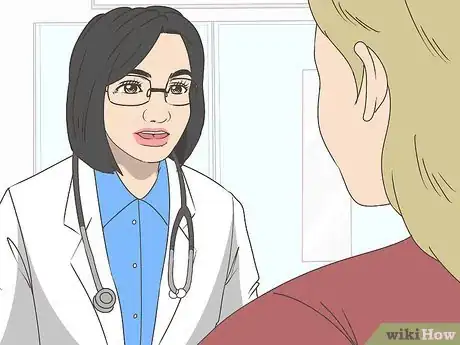
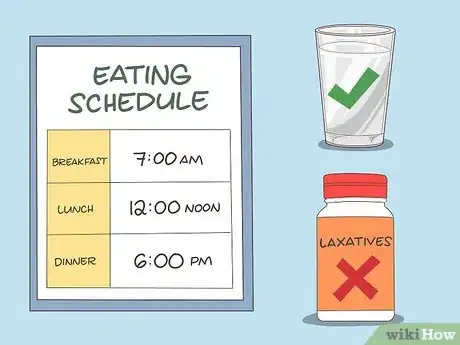
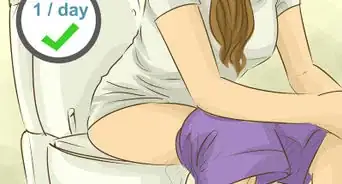
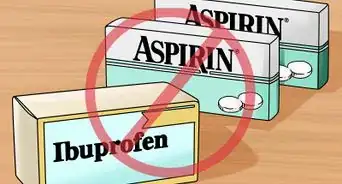
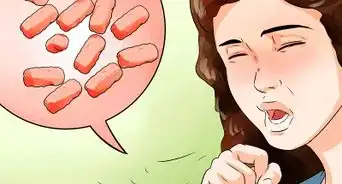
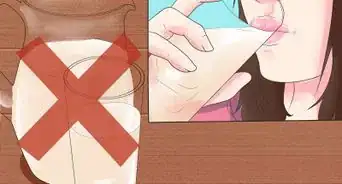
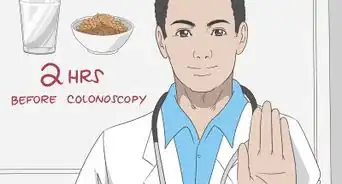
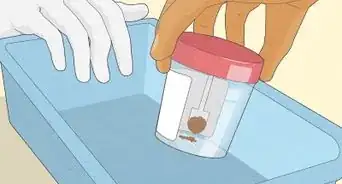
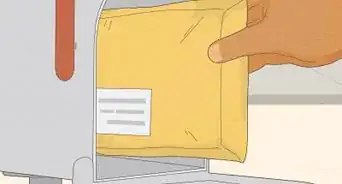
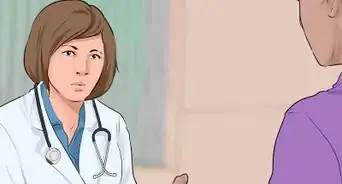
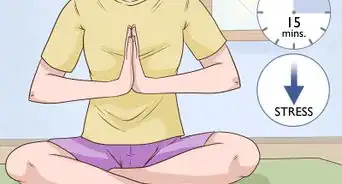
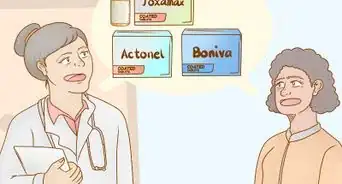
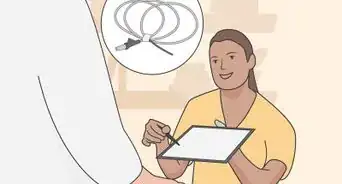
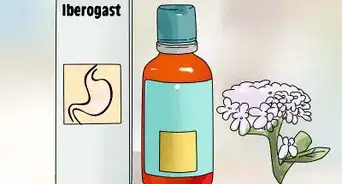

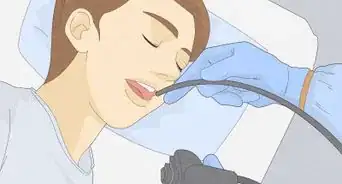










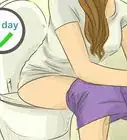
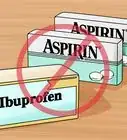
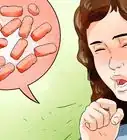
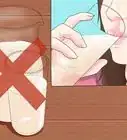



































Medical Disclaimer
The content of this article is not intended to be a substitute for professional medical advice, examination, diagnosis, or treatment. You should always contact your doctor or other qualified healthcare professional before starting, changing, or stopping any kind of health treatment.
Read More...